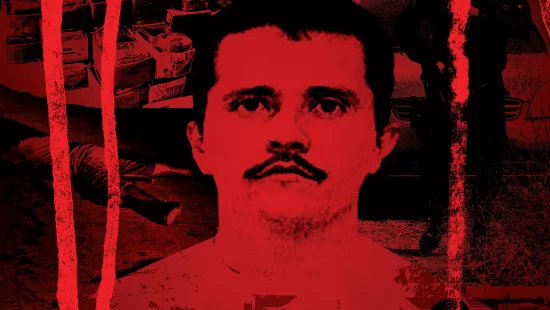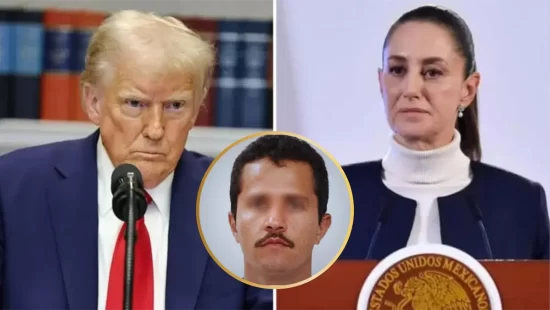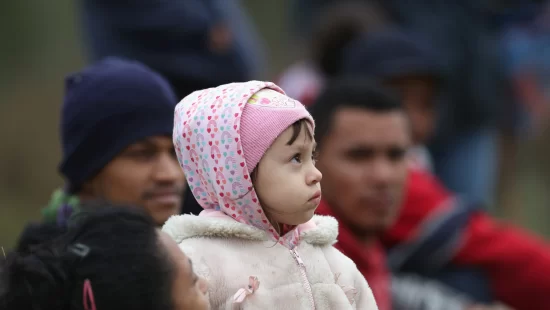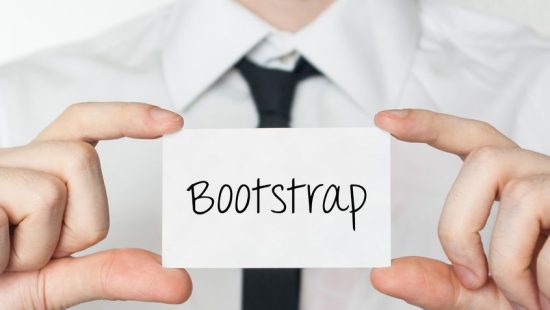A recent article published in a famous magazine describes what happens inside four walls, outside of street protests, ICE arrests and the agony of seeing money disappear and pressure increasing on families.
Erica Lubliner, a psychiatrist at the University of California, Los Angeles, directs a clinic that offers mental-health services to Latinos. She provides care to a wide range of patients: first- to fourth-generation immigrants, including undocumented immigrants, and undergraduate and graduate students at U.C.L.A., many of whom are the first in their families to go to college.
She usually meets patients in her bright office on campus in Westwood… But, after the ICE raids began around the city last month, she moved her appointments online. Lubliner’s patients are safe in her clinic, she told me, “but even getting here can be scary.”
She had heard that ICE agents had started parking outside some local hospitals. Many of their patients take the bus or walk to their appointments, and they worry that they might get apprehended on the way.
“It’s not wise for them to leave their homes, because ICE agents have been circling and patrolling neighborhoods,” she said. Many of their patients have increased their doses of anti-anxiety medication or have started taking it for the first time. Some young patients experience intense separation anxiety when they go to school, afraid that they’ll return home and their parents will be gone. Many adults ask friends and family to buy groceries for them or to walk their kids to school.
After ICE arrested people at their places of work, Lubliner sensed her patients’ anguish. “ICE is going after the gardener with his truck, the workers at the car wash. The idea that they are somehow dangerous cuts to their identity in a deep way,” she told me. “They feel unwanted. They feel targeted.”
Some of her less vulnerable patients participated in protests against the raids, but others struggled with whether to take the risk. “They feel guilty for not participating, and they feel helpless, and they feel afraid, but they also feel that it’s important to speak out because silence is not the answer, either,” she added to the magazine.
Her younger patients are asking her why people hate immigrants so much, or hate them and their families. Rusch said that she has a hard time answering these questions. (Her typical response is to talk about oppression in an age-appropriate way.)
Children are now having conversations with parents about what Plan B and Plan C are if they get deported. “They’re going to public notaries to write down what will happen to their children.” One of her patients is so afraid to go outside that she won’t throw out her trash, so she has a neighbor help her. “People are being grabbed off the streets, and their family members don’t know where they’re being taken,” Lubliner said. “There’s a level of terror I haven’t seen before.”
Many kids experience difficulty in school, and many adults are underemployed. Food may be scarce. They hear Trump Administration officials saying that all of them are criminals and that many of them are violent.
As patients sit in her office, Rusch told me, they can sometimes recognize that they’re safe, at least compared with earlier moments. But their experiences haunt them. They have a tough time trusting people. “Those are very normal responses to what you’ve been through,” she tells them.
(…) This makes sense to Rusch. “If you don’t have food, shelter, and safety, it’s hard to talk about the higher-order safety of psychological health,” she told me. “It’s not that one is less important, but it’s hard to jump from one floor to the next without stairs.”
(…) Lubliner told me that she doesn’t shy away from sharing her own experiences. Her father was American, and her mother was an undocumented Mexican immigrant. They met in Southern California, where Lubliner was born, and separated when she was a baby. Not long afterward, she was deported with her mother and her half-brother, who was also undocumented. She was too young to remember that period of her life, but she remembers her brother telling her stories about how they reentered the United States through tunnels beneath Tijuana.
“Being an immigrant is not for the faint of heart,” Lubliner told The New Yorker. “We have to give people a space where they don’t have to be resilient… we show incredible strength as we have repeatedly in the past. I think it’s important to reclaim that power.”
(Excerpt from the article What Therapists Treating Immigrants Hear appeared in The New Yorker)








